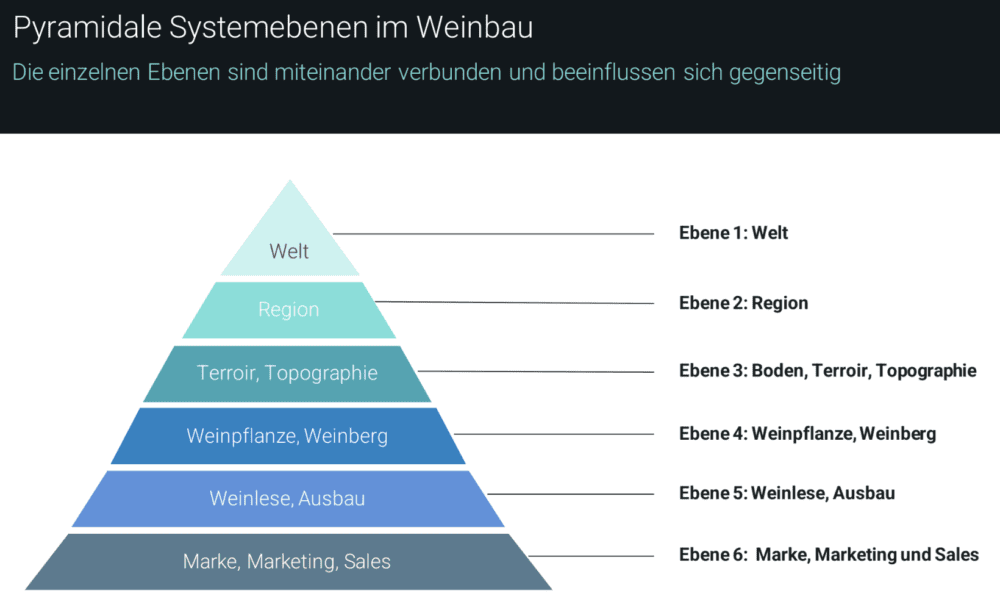In a world increasingly shaped by environmental challenges and the imperative of sustainable development, businesses play a crucial role in promoting eco-friendly practices. Wineries face the challenge of not only producing high-quality wine but also minimizing their environmental footprint.

In System Level 6, concerning brand building, marketing, and sales, wineries can actively contribute to the energy transition by optimizing these areas. A sustainable focus in brand, marketing, and sales not only creates a positive image but also fosters environmentally friendly practices in viticulture.
Measures for Active Support of the Energy Transition
Sustainable Brand Alignment
An essential pillar for the success of a winery is its brand. A clear focus on sustainability can not only enhance the company’s image but also encourage consumers to choose eco-friendly products. By using sustainable materials and supporting environmental initiatives, the winery’s brand signals its commitment to environmental protection.
Sustainability Marketing
Marketing plays a crucial role in spreading the message of sustainability and raising awareness. By positioning themselves as leaders in sustainability in viticulture and actively communicating their sustainability efforts, wineries can gain consumer trust and underscore their commitment to eco-friendly practices.
Sustainability-Focused Marketing
Targeted communication of the sustainability benefits of wine can motivate consumers to make eco-friendly purchasing decisions. Themes such as low water consumption, CO2 neutrality, and the use of sustainable packaging should be prominently highlighted in marketing campaigns to raise awareness of the environmental impact of winemaking.
Collaboration with Sustainable Influencers
Collaborating with influencers committed to sustainability allows wineries to make their sustainability efforts accessible to a broader audience and enhance their credibility. By partnering with influencers who share similar values, they can increase their reach and promote awareness of eco-friendly viticulture.
Sustainable Distribution Channels
Selecting sustainable distribution channels is another important step towards environmentally friendly wine production. By collaborating with retailers committed to sustainability or selling directly to consumers, wineries can reduce their environmental impact and demonstrate their support for eco-friendly practices throughout the industry.
Conclusion
In an era where climate change and environmental issues are becoming increasingly pressing, it is essential for businesses to take responsibility and engage in sustainability and environmental protection. Wineries have a unique opportunity to make a positive contribution to the energy transition through sustainable alignment in brand, marketing, and sales. The conscious integration of sustainable practices in all aspects of their business will not only strengthen their own image but also contribute to raising awareness of the importance of the energy transition in viticulture and promoting a sustainable transformation throughout the industry.
Implementing these measures enables wineries to not only improve their own sustainability performance but also serve as positive examples of eco-friendly viticulture. The conscious integration of sustainable practices in brand, marketing, and sales contributes to raising awareness of the importance of the energy transition in viticulture and exerting a positive influence on the entire industry.



